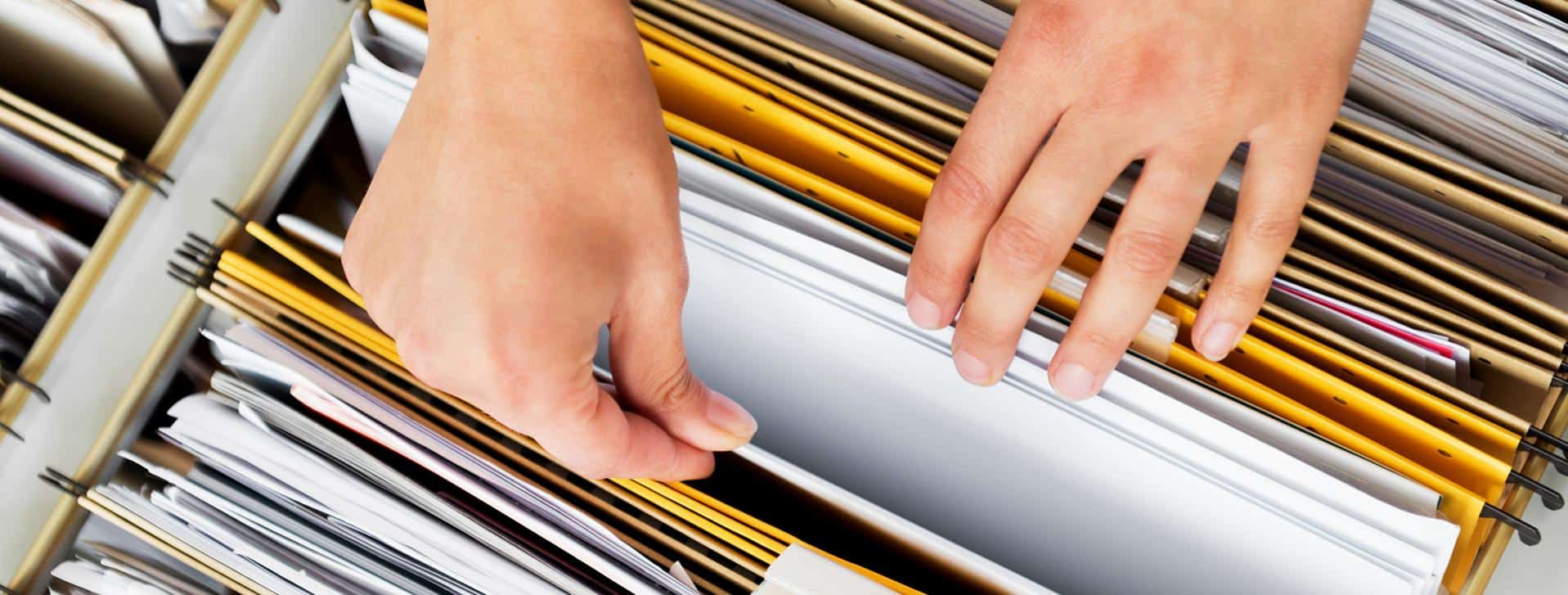Why Record Keeping is Still Important

Bank statements, tax documents and other financial records can quickly pile up, whether you receive paper statements or you store your documents electronically.
At some point, you might wonder which files you really need to save and which you can throw away. Here are a few pointers for storing your financial documents and other sensitive personal information.
Keep receipts until your bank statement closes.
It’s a good idea to hang on to credit card, debit card and ATM receipts until your bank statement closes. This allows you to ensure there aren’t any discrepancies or accidental charges. After the statement closes, it’s safe to dispose of receipts.
Keep pay stubs for one year.
Do you really need to hang onto all those pay stubs? Financial guru Suze Orman recommends keeping pay stubs for a year and getting rid of them once you receive your W2 from your employer.
Hang on to tax documents from the last seven years.
It’s unlikely that you’ll be audited by the IRS, but the IRS can technically audit your tax returns from the past three years.
Many financial experts recommend holding on to your tax documents for longer than three years to be on the safe side; Consumer Reports says to keep your tax records for at least seven years before throwing them away. That includes W2 and 1099 tax documents along with yearly statements for investment or retirement accounts.
Not sure how long to keep your tax returns? The FTC suggests hanging on to those forever.
Store social security cards, birth certificates and other documents carefully.
Never carry around your social security card or sensitive documents when you’re out and about. You can use a small safe at home to store your most important personal documents, including your social security card, passport, mortgage records and receipts for major purchases. When it comes time to dispose of sensitive documents, consider using a shredder to remove your sensitive information.
Take extra steps to protect sensitive electronic documents.
If you prefer to manage your paperwork digitally, be sure to use a strong password on all your devices so your records don’t fall into the wrong hands. Keep backup copies of important files, and if you’re storing documents in the cloud, take advantage of services that offer encryption and added security.

